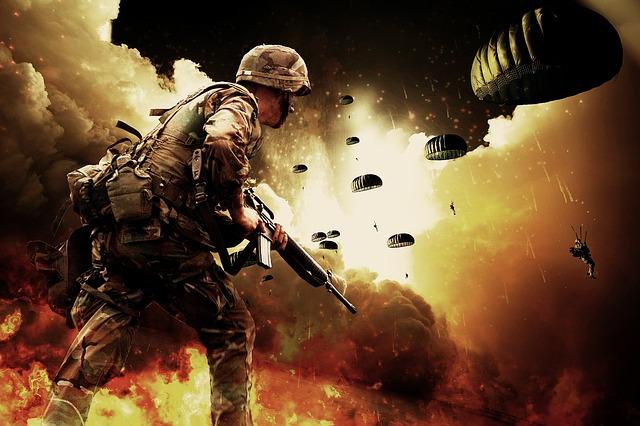Title: The Warrior Ethos: A Misguided Quest for Security That Overlooks Eisenhower’s Insights
In today’s world, characterized by rising geopolitical tensions and escalating military expenditures, the notion of “warrior ethos” has become a rallying point as well as a source of debate within military circles. Advocates assert that a strong military presence equates to national security, fostering the belief that battlefield strength ensures domestic stability. However, this viewpoint risks overshadowing the nuanced perspectives of historical leaders like President Dwight D. Eisenhower, who championed a more holistic approach to security—one that prioritizes diplomacy and collaboration over sheer force. As nations continue their arms races and display military might, it is essential to scrutinize the dangers of equating military capability with genuine security. This article examines the consequences of an inflexible warrior ethos and highlights how disregarding Eisenhower’s emphasis on balanced strategic engagement could lead to misconceptions about peace and safety in our contemporary world.
Examining the Shortcomings of Warrior Ethos in Contemporary Security Frameworks
The integration of warrior ethos into modern security strategies often results in a distorted perception of what constitutes true safety and stability. This mindset favors aggressive solutions over diplomatic efforts and is heavily shaped by historical narratives that glorify victories achieved through strength. Such an approach frequently neglects the complexities inherent in current conflicts where threats extend beyond traditional warfare to include cyberattacks, terrorism, and civil unrest. This narrow perspective can lead to detrimental policies prioritizing military spending at the expense of crucial social initiatives aimed at addressing fundamental causes of insecurity.
Conversely, insights from leaders like Dwight D. Eisenhower remind us that authentic security stems not from weaponry but from fostering diplomatic relations,economic stability, and cultivating mutual respect among nations. Eisenhower’s wisdom underscores prevention over reaction while valuing cooperation rather than confrontation. Adopting an integrated strategy combining military readiness with diplomatic efforts can pave the way for sustainable peace.
| Warrior Ethos | Eisenhower’s Approach | ||||||
|---|---|---|---|---|---|---|---|
| Focus: Military dominance | Focus: Strategic dialogue | ||||||
| Action: Preemptive measures | Action: Resolving conflicts through negotiation | ||||||
| Outcome: Increased tensions | Outcome: Enhanced international collaboration | ||||||
| Component | < b Examples th /> / tr > < b Military Strength< b > td >
|
|
| / tr >
|
| < d Humanitarian Efforts< d Address root causes conflict< d NGO Initiatives/development projects/ < t r /> /tbody /table Embracing this comprehensive view allows nations leverage strengths while simultaneously addressing broader aspects often overlooked when discussing national securities Invoking Eisehnower emphasizes necessity sophisticated approaches recognizing power dynamics involving stakeholders committed principles mutual respect cooperation. |









